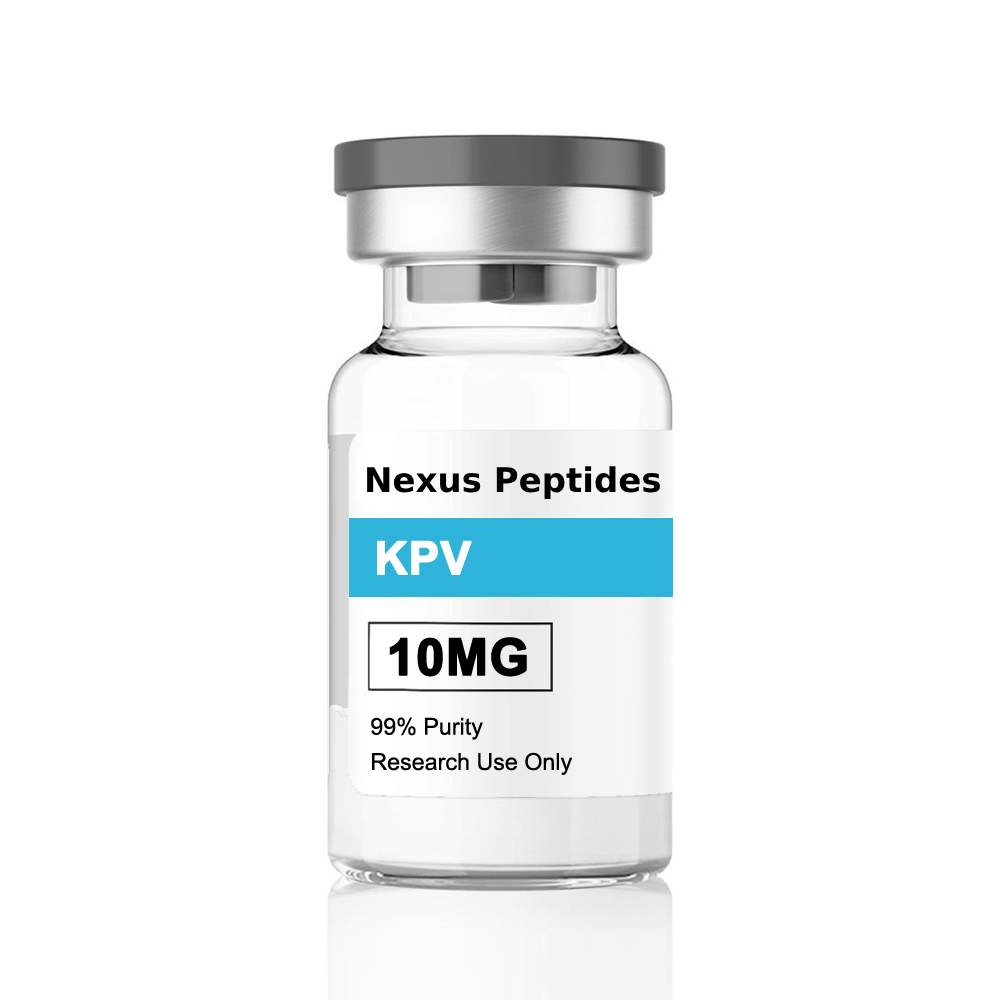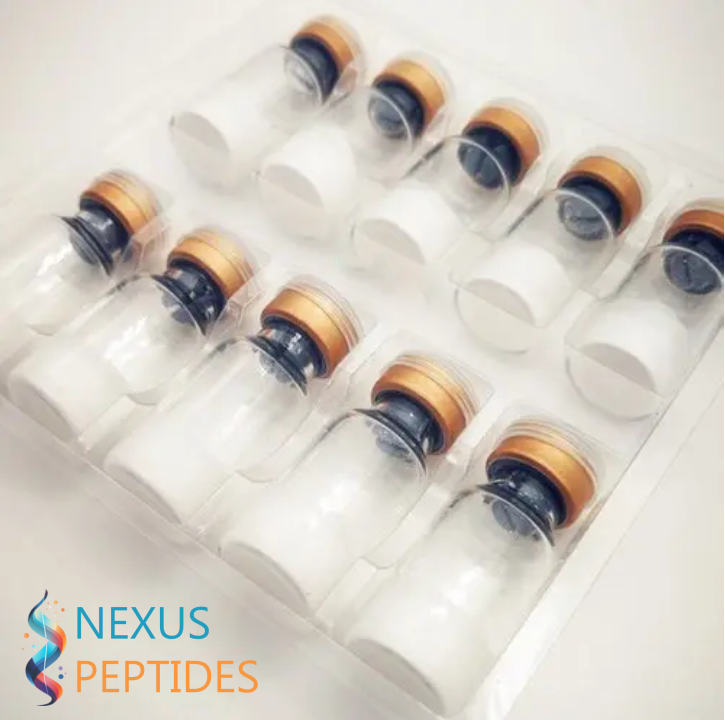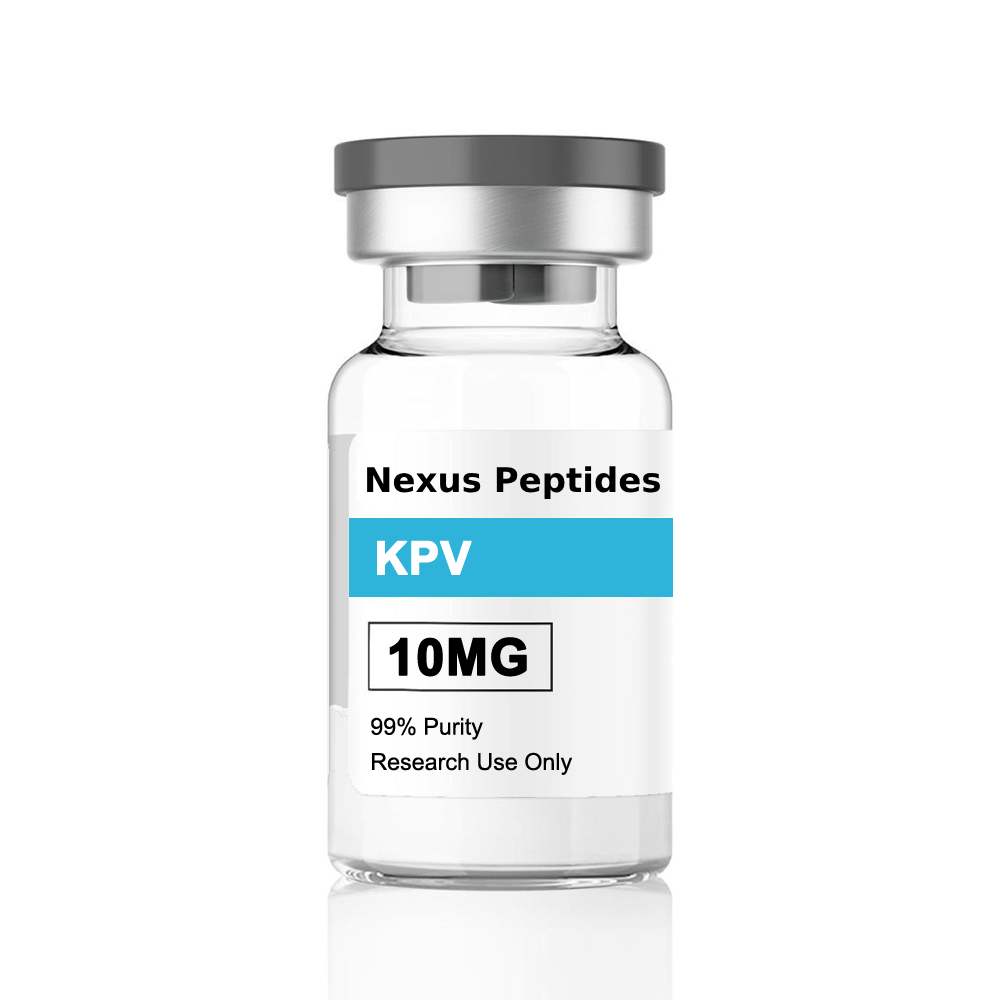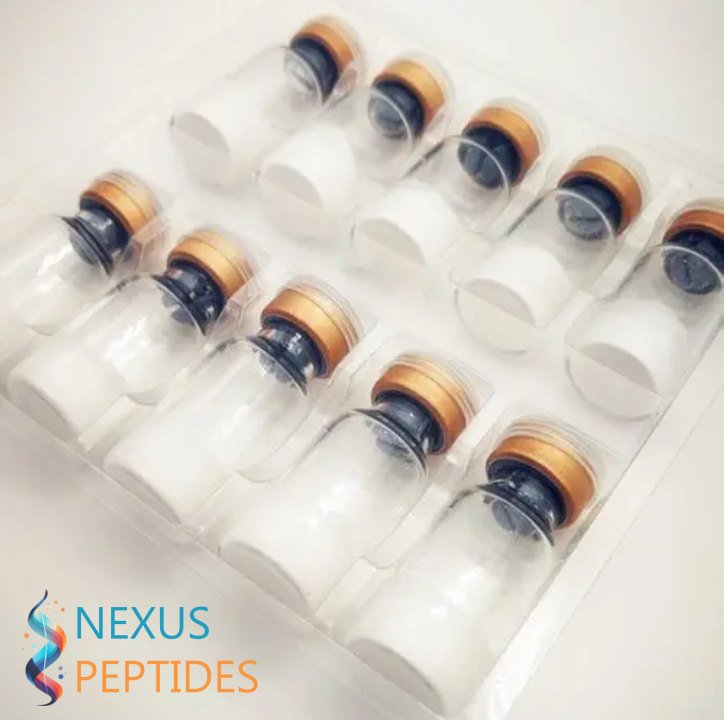Nexus Peptides
KPV: 5-10mg*10 vials
KPV: 5-10mg*10 vials
Couldn't load pickup availability
Share


Product Description: KPV
Introduction
KPV is a peptide composed of three amino acids—lysine (K), proline (P), and valine (V)—and is a fragment of the larger peptide known as alpha-melanocyte-stimulating hormone (α-MSH). As a bioactive peptide, KPV has been the subject of research due to its potential biological activity. KPV has gained attention for its possible roles in inflammation and the regulation of various physiological processes, as it is derived from a naturally occurring peptide in the body. While its complete range of effects remains an area of investigation, KPV continues to be explored in scientific studies to better understand its potential functions.
What is KPV?
KPV is a peptide made up of a short sequence of amino acids, specifically lysine, proline, and valine. It is a tripeptide derived from the C-terminal portion of the α-MSH peptide, which plays a role in skin pigmentation, appetite regulation, and immune response. KPV retains certain bioactive properties of α-MSH, though it is significantly shorter and distinct in its actions. Researchers are particularly interested in KPV's interaction with melanocortin receptors and its potential effects in biological systems related to immune function, inflammation, and other physiological pathways.
Potential Different Names
- KPV Tripeptide
- Lys-Pro-Val
- Alpha-MSH Fragment
- Melanocortin Peptide
Chemical Formula
- C15H22N4O4
Structure
KPV is a short peptide with a simple structure comprising three amino acids: lysine (K), proline (P), and valine (V). Its structure is as follows:
- L-lysine
- L-proline
- L-valine
The peptide is linked by peptide bonds between the amino acids, forming a specific sequence that enables it to interact with melanocortin receptors. The structure of KPV allows it to exhibit certain properties that are thought to be involved in modulating specific biological functions.
How Does It Work?
KPV acts by interacting with melanocortin receptors, particularly the melanocortin 1 receptor (MC1R), MC3R, and possibly others. These receptors are involved in a range of physiological processes, including immune response, inflammation, and metabolic regulation. While the precise mechanisms of KPV's action are still being studied, it is believed that KPV may play a role in modulating inflammation through its receptor activity. Additionally, because KPV is derived from α-MSH, it shares some of its biological activity, including potential involvement in immune modulation and regulation of specific enzymes involved in cellular processes.
Due to its origin as a fragment of α-MSH, KPV is thought to act on the same signaling pathways that are involved in melanocortin activity, including those linked to inflammatory responses. Research is ongoing to determine the full extent of its interactions and potential applications in various biological contexts.
Conclusion
KPV is a synthetic peptide derived from the α-MSH hormone, and it is of significant interest to researchers studying immune function, inflammation, and other biological processes. While KPV is a much smaller fragment than α-MSH, it retains the ability to interact with melanocortin receptors, making it valuable for research into a variety of physiological systems. As with many peptides, further scientific investigation is needed to fully understand its mechanisms and potential roles in the body.
Disclaimer
KPV is intended for research purposes only and is not intended for use in human or animal consumption. It is not approved for medical, therapeutic, or diagnostic purposes. This product description is for informational purposes and does not make any health-related claims. Researchers are advised to follow appropriate safety and handling guidelines when working with this peptide and to comply with all relevant laws and regulations regarding its use.


